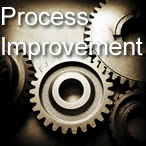Lean Finance – Continuous Improvement
After having in previous blogs highlighted the first two principles of Lean as they relate to the Finance function, Adding Value and Reducing Waste, let’s talk about the third and final principle of Lean: Continuous Improvement.
Broadly speaking, Lean projects need to commence with a Lean Analysis to assess the existing situation and determine the scope of the Lean Transformation project. From this, the Lean Transformation project can be further developed and implemented, focussing on opportunities to add value and reduce waste in order to optimise outcomes for the company (i.e. including the Fat Profits referred to in our book ‘Lean Business,Fat Profits’).
However Lean does not end when the Lean Transformation project is completed. Lean is a mindset, continually looking for incremental improvements.
Read more →



